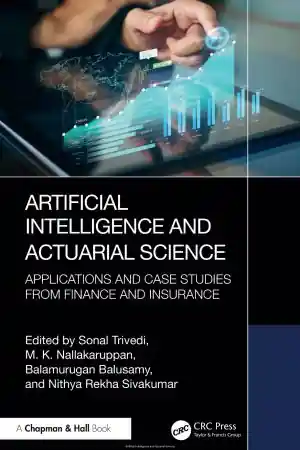
15 Math Concepts Every Data Scientist Should Know: Understand and learn how to apply the math behind data science algorithms
- Length: 492 pages
- Edition: 1
- Language: English
- Publisher: Packt Publishing
- Publication Date: 2024-09-10
- ISBN-10: 1837634181
- ISBN-13: 9781837634187
Create more effective and powerful data science solutions by learning when, where, and how to apply key math principles that drive most data science algorithms
Key Features
- Understand key data science algorithms with Python-based examples
- Increase the impact of your data science solutions by learning how to apply existing algorithms
- Take your data science solutions to the next level by learning how to create new algorithms
- Purchase of the print or Kindle book includes a free PDF eBook
Book Description
Data science combines the power of data with the rigor of scientific methodology, with mathematics providing the tools and frameworks for analysis, algorithm development, and deriving insights. As machine learning algorithms become increasingly complex, a solid grounding in math is crucial for data scientists. David Hoyle, with over 30 years of experience in statistical and mathematical modeling, brings unparalleled industrial expertise to this book, drawing from his work in building predictive models for the world’s largest retailers.
Encompassing 15 crucial concepts, this book covers a spectrum of mathematical techniques to help you understand a vast range of data science algorithms and applications. Starting with essential foundational concepts, such as random variables and probability distributions, you’ll learn why data varies, and explore matrices and linear algebra to transform that data. Building upon this foundation, the book spans general intermediate concepts, such as model complexity and network analysis, as well as advanced concepts such as kernel-based learning and information theory. Each concept is illustrated with Python code snippets demonstrating their practical application to solve problems.
By the end of the book, you’ll have the confidence to apply key mathematical concepts to your data science challenges.
What you will learn
- Master foundational concepts that underpin all data science applications
- Use advanced techniques to elevate your data science proficiency
- Apply data science concepts to solve real-world data science challenges
- Implement the NumPy, SciPy, and scikit-learn concepts in Python
- Build predictive machine learning models with mathematical concepts
- Gain expertise in Bayesian non-parametric methods for advanced probabilistic modeling
- Acquire mathematical skills tailored for time-series and network data types
Who this book is for
This book is for data scientists, machine learning engineers, and data analysts who already use data science tools and libraries but want to learn more about the underlying math. Whether you’re looking to build upon the math you already know, or need insights into when and how to adopt tools and libraries to your data science problem, this book is for you. Organized into essential, general, and selected concepts, this book is for both practitioners just starting out on their data science journey and experienced data scientists.
Table of Contents
- Recap of Mathematical Notation and Terminology
- Random Variables and Probability Distributions
- Matrices and Linear Algebra
- Loss Functions and Optimization
- Probabilistic Modeling
- Time Series and Forecasting
- Hypothesis Testing
- Model Complexity
- Function Decomposition
- Network Analysis
- Dynamical Systems and Evolution Equations
- Kernel Methods
- Information Theory
- Bayesian Non-Parametric Methods
- Random Matrices







